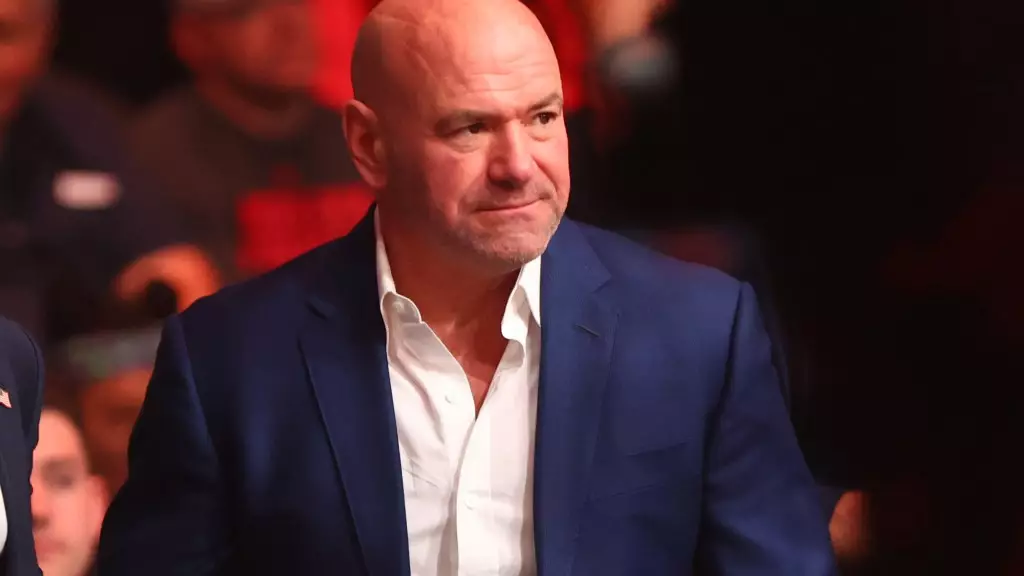The recent developments surrounding the antitrust settlement involving the UFC and its former fighters highlight significant ongoing issues within the sports industry, particularly concerning the rights and compensation of athletes. A U.S. district court judge has temporarily approved a $375 million settlement, marking a pivotal moment in a legal struggle that sheds light on the complexities and challenges faced by mixed martial artists. This settlement could potentially reshape the landscape of athlete contracts and compensation in the UFC and beyond.
Initially, Judge Richard Boulware of Nevada expressed reservations about a previously proposed $325 million settlement, which combined claims from multiple lawsuits. His concerns stemmed from inconsistencies in the compensation offered to the plaintiffs compared to their initial claims. The revised settlement agreement significantly increased the payout to $375 million, and crucially, excluded a separate lawsuit that sought injunctive relief regarding UFC’s business practices. This alteration seemingly addressed Boulware’s concerns, allowing the temporary approval to unfold.
Sports economist Paul Gift’s observations from the court hearing shed light on the distribution of funds. Of the total settlement, approximately $240 million to $260 million is designated for qualifying fighters—those who competed in UFC bouts between December 2010 and June 2017. This distribution suggests an important shift toward compensating fighters for their sacrifices within the UFC, recognizing the physical, mental, and emotional toll of the sport. The confirmation from former UFC fighter Tom Lawlor regarding the temporary approval further emphasizes the gravity of the situation, as it affects a significant number of athletes.
A noteworthy aspect of the court’s decision was the emphasized importance of fighter testimonials during the approval process. Over 100 former UFC fighters submitted letters that detailed their struggles after leaving the promotion. These personal accounts were recognized by Boulware as influential in his decision, highlighting the need for recognition and relief for fighters who often face physical and financial hardship post-career. This acknowledgment by the court could suggest a movement towards a more empathetic understanding of the fighters’ positions within the business framework of the UFC.
The testimonies, which described the fighters’ post-UFC experiences, played a “quite significant” role, reiterating a vital aspect of the legal proceedings: the human element. While financial settlements are crucial, the emotional and psychological aspects of a fighter’s career cannot be overshadowed. The court’s consideration of these narratives signifies a potential shift toward greater accountability within sports organizations.
The settlement’s approval is an essential milestone, yet it represents only one facet of a more extensive legal narrative. The pending class action, Johnson vs. Zuffa, seeks not just monetary damages but aims for significant changes in UFC contract structures and business practices. This division between compensation and the pursuit of legislative change underscores the fighters’ broader fight for rights and recognition. Eric L. Cramer, the lead attorney for the plaintiffs, articulated the monumental significance of the preliminary approval while indicating that the effort to pursue more substantial systemic changes is still ongoing.
The historical context surrounding these legal challenges is essential, as five separate class-action lawsuits from 2014 consolidated into the one led by Cung Le and others. The allegations focus primarily on violations of the Sherman Act, targeting the UFC’s business practices that allegedly stifle competition and limit athletes’ negotiating power. Such legal frameworks could provide a path for future participants in combat sports to advocate for better rights and conditions.
As we move forward, the implications of this settlement may ripple through mixed martial arts, prompting a re-evaluation of how fighter contracts are structured. The successful pursuit of injunctive relief in the future could lead to a significant shift in the operational dynamics of the UFC. If athletes can negotiate more favorable terms and assert their rights more effectively, we may see a landscape that offers them better security and opportunities to thrive.
The settlement is a critical step towards recognizing the contributions of fighters and ensuring they receive fair treatment within the highly lucrative business of mixed martial arts. As the gaps in compensation and well-being continue to be addressed in legal forums, fighters may find a more sustainable path in their careers, paving the way for future generations in the sport.

